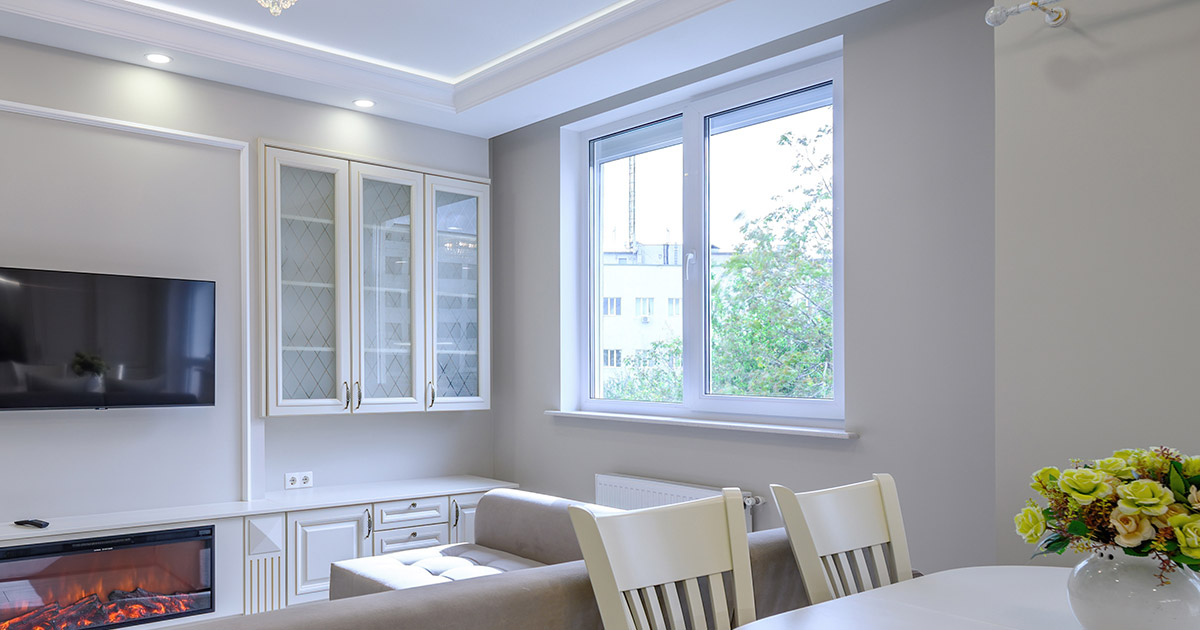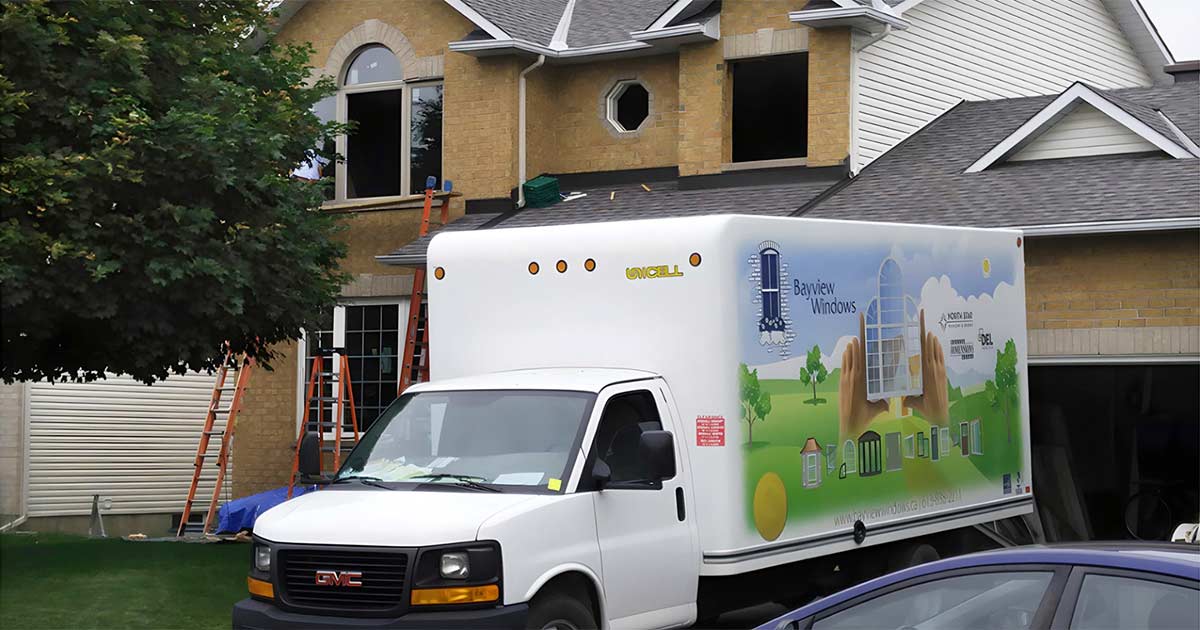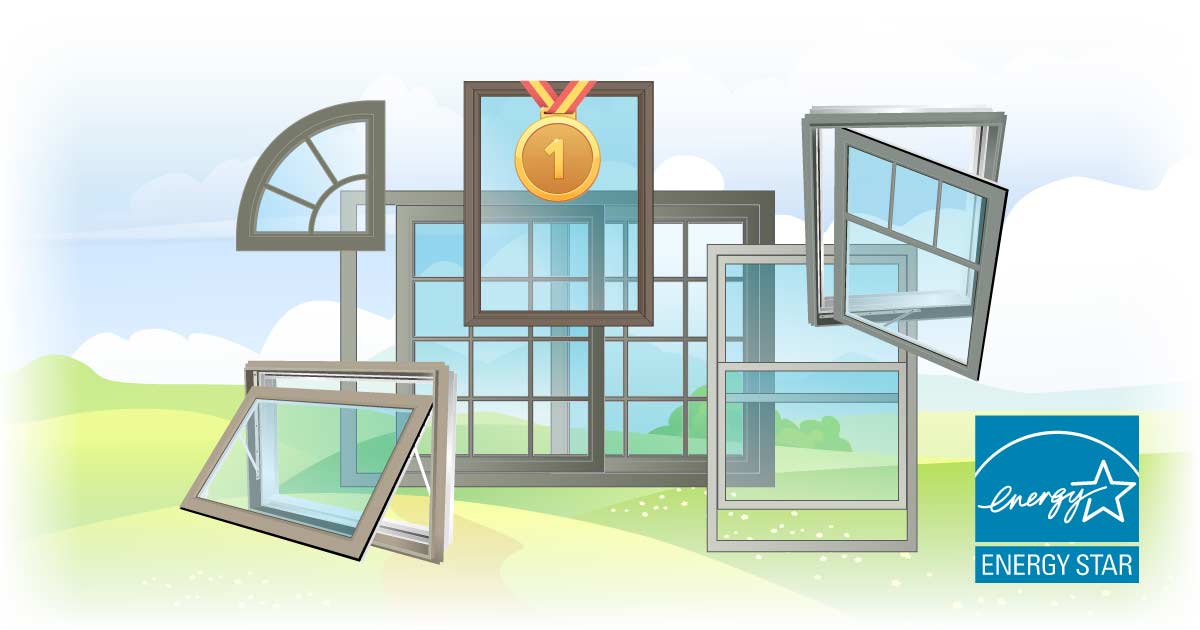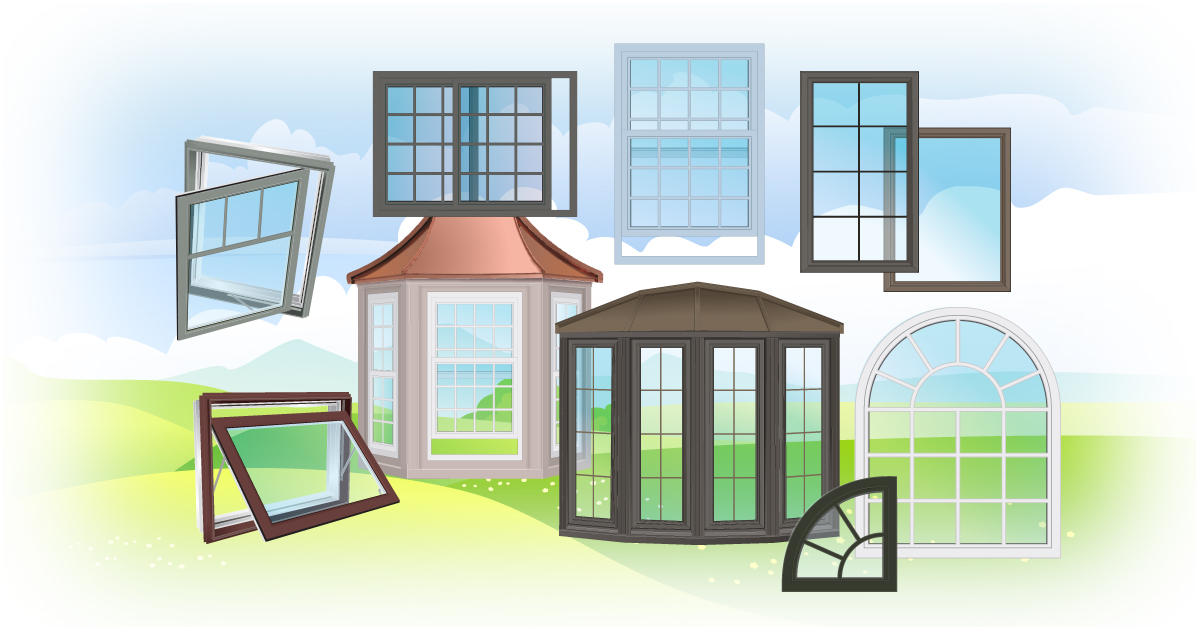Insights > Article > Posted: 2024-Nov-16, Updated: 2025-Oct-27
Expert Tips for Selecting the Perfect Replacement Windows
In this article:
- Quality Products
- Comparing window frame materials
- Operational windows
- Aesthetics
- Price
- Energy Efficiency
- Understanding Window Ratings
- Choosing the right windows for Ottawa’s climate
- Available rebates and financing
- Timing
- Installation
- Preparing for your window installation
- Understanding Window Warranties
- What to Expect After Installation
- Request a quote
Choosing the right replacement windows for your home isn’t just about looks, it’s about making smart, long-lasting decisions that improve comfort, reduce energy costs, and boost your home’s value. With so many options available, from window styles and frame materials to glass technology and energy ratings, it can be hard to know where to start.
In this guide, we’ll walk you through the most important factors to consider, so you can feel confident in your investment. Want to be an expert? Be sure to check out more of our articles.
Quality products

The quality of a window isn’t just about how it looks — it’s about durability and performance. While this can be subjective, one reliable indicator is the manufacturer's warranty. A window with a long-term warranty (25 years or more) reflects the manufacturer’s confidence in their product and provides peace of mind for homeowners.
Before deciding, visit the window company and test the product in person. This hands-on approach will allow you to assess its build, functionality, and overall craftsmanship. The best windows should feel solid and operate smoothly, aligning with your expectations.
Look for warranties that cover both labour and materials. Comprehensive coverage means you’re protected from both product and installation defects, ensuring that your windows last and perform for decades to come.
Window frame & sash materials
The type of frame material you choose will affect your window’s appearance, energy efficiency, maintenance needs, and cost. Vinyl frames are a popular choice for their affordability, low maintenance, and good insulation. Wood frames offer a classic look and excellent insulation but require regular upkeep. Aluminium frames are durable but less energy-efficient, while fibreglass and hybrid frames provide strength and thermal performance with a modern look. Each material has its pros and cons depending on your budget and design goals.
Operational window types
When choosing replacement windows, it’s important to consider how the window opens and functions. Different styles offer unique advantages depending on your home’s layout and needs.
For example, casement windows open outward like a door and provide excellent ventilation and energy efficiency. Sliding windows are great for wide openings and are easy to operate. Awning windows are ideal for ventilation in rainy weather, while picture windows offer unobstructed views but don’t open. Knowing the benefits and limitations of each style can help you make a more informed decision.
Aesthetics

The best replacement windows should not only function well but also enhance the beauty of your home. A window that complements your home’s style boosts curb appeal and increases overall satisfaction.
Custom window companies often offer a wide range of design options, from exterior and interior colours to various grill patterns and glass finishes. Choose a provider that offers the flexibility to match your vision without compromising on details.
Be cautious if a consultant advises you to deviate from your preferred style — this could indicate limitations in their products. You deserve windows that align perfectly with your design goals.
Price
Finding the best price involves comparing identical products across different providers. It’s important to compare apples to apples, meaning you should evaluate the same window styles, materials, and options. Many companies in the Ottawa area offer similar products, so use this to your advantage. If you have good negotiation skills, you can pit one company’s offer against another to get the best deal.
Beyond the initial cost, consider potential future expenses. What happens if something goes wrong after installation? Ensure the warranty covers both labour and materials, so you don’t get stuck with unexpected costs down the road.
Energy efficiency
In Ottawa, where temperatures range from -30°C in the winter to +30°C in the summer, energy-efficient windows are essential. They can significantly reduce heating and cooling costs, making them a top priority when choosing replacements.
While wooden windows are known for their superior insulation, they tend to be more expensive. Luckily, there are high-performance alternatives like vinyl-clad wood, aluminium-clad wood, and multi-chamber vinyl or fibreglass windows, which offer excellent energy efficiency at a more affordable price.
Look for Energy Star-rated windows and use tools from Natural Resources Canada to compare energy performance ratings. This ensures that you’re not only choosing the most efficient windows but also balancing cost and performance.
Understanding window ratings
Window performance is measured using several key ratings, and understanding these can help you choose more efficiently. Energy Rating (ER) combines heat gain, heat loss, and air leakage into a single number—the higher the ER, the better. U-factor measures how well a window prevents heat from escaping; a lower number means better insulation. Solar Heat Gain Coefficient (SHGC) indicates how much solar heat a window lets in. These values are especially important when comparing products that all claim to be "energy efficient.
The right windows for Ottawa’s climate

Ottawa’s climate can be harsh, with cold winters, hot summers, and high humidity levels that can all impact window performance. Look for windows designed for northern climates, such as those with triple glazing, insulated frames, and Low-E glass coatings that reflect heat in the summer while retaining warmth in the winter. Windows suited to Ottawa’s unique climate will not only improve comfort but also reduce energy consumption throughout the year.
Rebates and financing
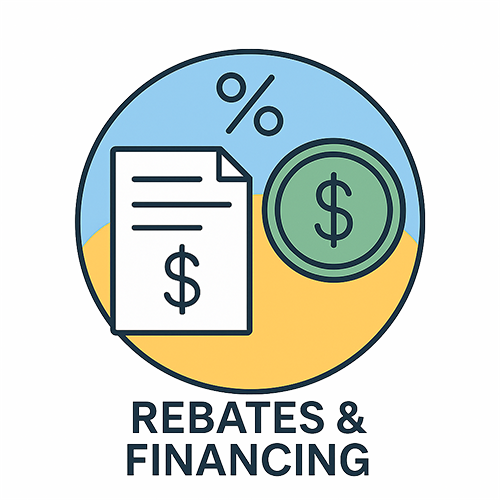
Replacing your windows with energy-efficient models may come with financial benefits beyond monthly savings. Homeowners in Ottawa may be eligible for government rebates or low-interest loans through programs like Enbridge HER+ or the Canada Greener Homes Initiative. These incentives can help offset the cost of higher-performance windows and make your investment more affordable. It’s worth asking your window provider about current offers and eligibility.
Timing
Timing is an often-overlooked factor when replacing windows. If you're hoping for a quick installation, plan your purchase for late fall or early winter, when demand is lower. During the spring and summer, high demand can push installation wait times from 8 to 12 weeks, or even longer.
Be aware that government rebate programs can also affect lead times, and recent supply chain issues caused by the COVID-19 pandemic have extended installation times to as much as 4 to 8 months in some cases. Strategic timing helps you avoid long delays and ensures a smoother installation process.
Installation
Even if you choose the best windows, a poor installation can compromise their performance. The installation process is just as important as the product itself, so be sure to choose a reputable company with a proven track record.
Look for installers who have strong reviews and are willing to provide references. A company that stands behind its products and services — and offers comprehensive after-sales support — is essential to ensuring that your new windows live up to their full potential.
Preparing for your window installation
Once you’ve chosen your windows, it’s helpful to prepare your space before installation day. Clear any furniture, curtains, or blinds away from the windows being replaced. Remove fragile items from the work area and make arrangements for pets to stay safe and out of the way. A clean, accessible workspace helps your installers work efficiently and reduces the chance of delays. Your window company should provide a checklist to guide you, but a little prep can go a long way.
Window warranties
A quality window should come with a warranty that gives you peace of mind. When comparing products, it’s important to understand what kind of warranty is offered. Most window manufacturers provide a limited lifetime warranty that covers things like glass failure, hardware issues, or defects in materials. Some warranties are transferable to new homeowners, which can add value to your property. In addition, make sure to ask about the installation warranty—this covers the work done by the installer, which is separate from the window itself. Knowing what’s covered and for how long can help you avoid surprises down the road.
What to expect after installation
A professional window replacement should include more than just a neat installation—it should also leave your home clean and clutter-free. Ask your installer if they remove and dispose of old windows and packaging materials. Most reputable companies will also clean up any dust or debris from the work area and ensure your new windows are operating properly before they leave. At Bayview Windows, we take pride in treating your home with respect, from start to finish. A smooth, clean wrap-up is the final touch in a job well done.
Summary
To achieve the best window solution, prioritise considerations such as Quality, Aesthetics, Price, Energy Efficiency, Time, and Installation. Evaluate warranties, negotiate prices, and choose energy-efficient materials. Plan installations strategically, particularly during less busy periods, and select a reputable installation company for optimal performance and longevity.
Related articles
Need more information?
If you would like to know more about how to find and select the best
windows possible, give us a call or send us a request for more
information. We’d be happy to answer all of your questions.

